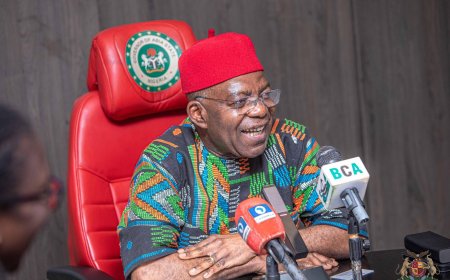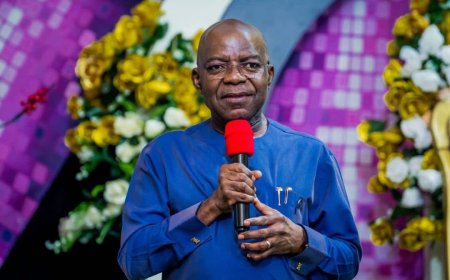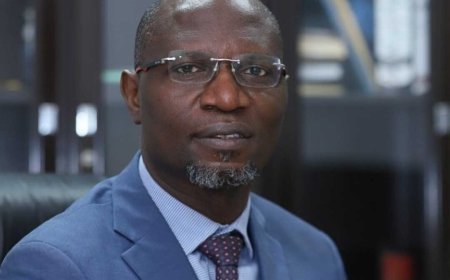Is Ude Oko Chukwu Now a Saint? The Debate Over His Entry Into Labour Party-Media Aide to Gov Otti
Former Abia Deputy Governor, Ude Oko Chukwu, has joined the Labour Party under Governor Alex Otti, sparking debates about forgiveness, redemption, and the line between Old Abia and New Abia.
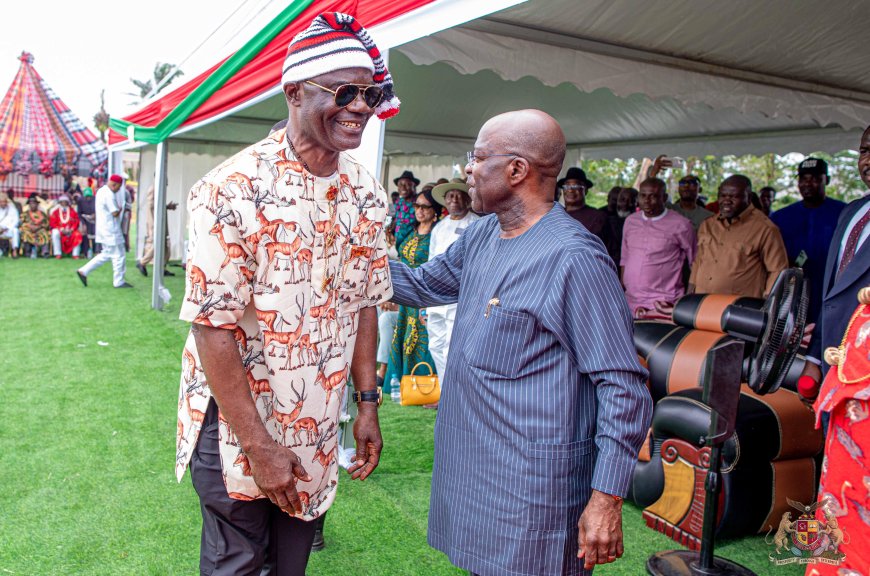
The political atmosphere in Abia State has taken a dramatic turn following the grand reception of the former Deputy Governor, Rt. Hon. Ude Oko Chukwu, into the Labour Party (LP). The move, personally endorsed by Governor Alex Otti, has sparked both praise and controversy across the state’s political landscape.
For many, Ude Oko Chukwu’s defection from the People’s Democratic Party (PDP) to Labour Party marks a major victory for the Governor. They argue that bringing in a heavyweight with deep political influence and loyal supporters further strengthens the ruling party’s grip on Abia’s political scene. His supporters, who defected en masse alongside him, see the move as a renewed alignment with progressive governance under Otti’s leadership.
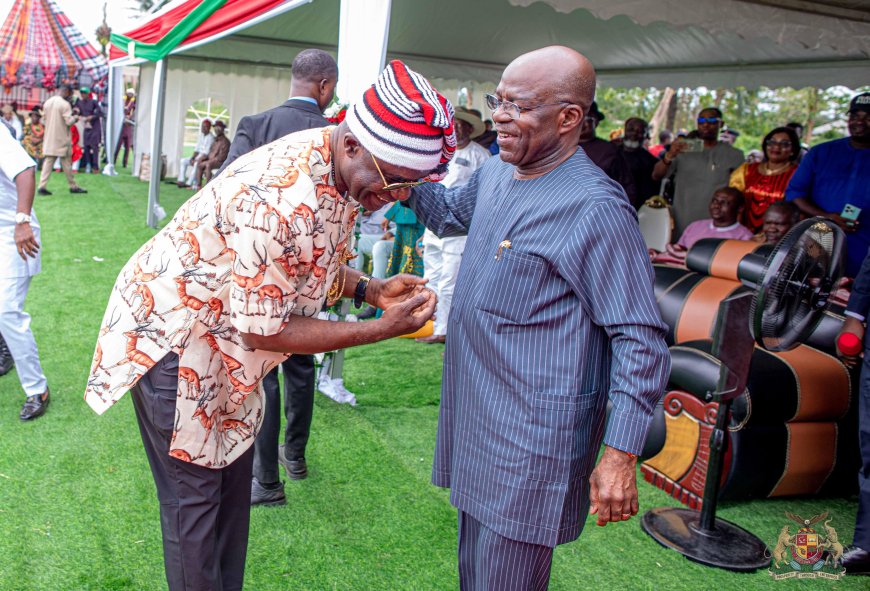
Yet, critics are unconvinced. Some voices, especially from the opposition, question why Oko Chukwu—a key figure in the administration of former Governor Okezie Ikpeazu—should be welcomed into what many describe as “the party of saints.” For them, the defection raises concerns about the sincerity of Labour Party’s claim of building a “New Abia.”
Political commentators have framed the development within the larger narrative of “Old Abia” and “New Abia.” The Old Abia, they argue, represents leaders who presided over years of mismanagement and decline, resisting change while attempting to undermine Governor Otti’s reforms.
The New Abia, on the other hand, is built on the principles of intentional governance, accountability, and progressive development. It is open to all, but only on the condition of “genuine repentance.”
Quoting from Luke 17:3—“If your brother sins, rebuke him; and if he repents, forgive him”, analysts suggest that Oko Chukwu’s move symbolizes repentance and acceptance of change. In this view, he has crossed from Old Abia into New Abia and, as such, deserves a fresh start.

Governor Otti has consistently likened politics to the church: sinners are not rejected at the door unless they refuse to shed their old ways. However, newly admitted members must prove their sincerity through loyalty, humility, and genuine change before ascending to leadership roles.
This principle, insiders say, guides the administration’s decision to welcome Oko Chukwu. While he is now part of the New Abia, he is expected to walk the path of accountability, aligning himself fully with the Governor’s reform-driven leadership style.

Supporters of the move argue that Abia cannot afford to permanently exclude politicians who admit past errors and choose to embrace the new order. To them, the decision to welcome Oko Chukwu is a sign of maturity and inclusivity in governance.
“The New Abia is not about vengeance but transformation,” one commentator noted. “Even Ikpeazu himself will not be denied entry if he accepts his past wrongs and shows genuine repentance. But forgiveness does not erase accountability—anyone found wanting will still face judgment.”
Whether or not Ude Oko Chukwu is truly a “saint” remains a matter of perception. But politically, his entry into Labour Party signals a strategic boost for Governor Otti while intensifying debates about the meaning of forgiveness, redemption, and accountability in Abia’s political transition.
For now, Oko Chukwu has joined the ranks of the New Abia, and only time will reveal how faithfully he walks in his new political skin






